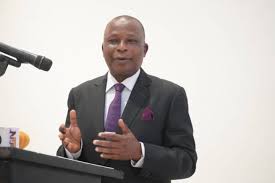Oil & Energy
States Can’t Slash Electricity Tariffs – NERC

Oil & Energy
Tinubu Backs N4trn Bond To Resolve Power Sector Liabilities

Oil & Energy
Oil Sector Slowdown’ll Threaten 2025 Budget Execution – NESG

Oil & Energy
Nigeria Loses More Crude Oil Than Some OPEC Members – Nwoko

Nigeria’s losses due to crude oil theft has been said to be more significant than those of some other members of the Organisation of Petroleum Exporting Countries(OPEC).
The Chairman, Senate Ad- hoc Committee on Crude Oil Theft, Senator Ned Nwoko, made this known in an interview with newsmen in Abuja.
Nwoko noted with dismay the detrimental impact of the issue, which, he said include economic damage, environmental destruction, and its impact on host communities.
According to him, the theft was not only weakening the Naira, but also depriving the nation of vital revenue needed for infrastructure, healthcare, education and social development.
The Senator representing Delta North Senatorial District described the scale of the theft as staggering, with reports indicating losses of over 200,000 barrels per day.
Nwoko disclosed that the ad hoc committee on Crude Oil Theft, which he chairs, recently had a two-day public hearing on the rampant theft of crude oil through illegal bunkering, pipeline vandalism, and the systemic gaps in the regulation and surveillance of the nation’s petroleum resources.
According to him, the public hearing was a pivotal step in addressing one of the most pressing challenges facing the nation.
‘’Nigeria loses billions of dollars annually to crude oil theft. This is severely undermining our economy, weakening the Naira and depriving the nation of vital revenue needed for infrastructure, healthcare, education, and social development.
‘’The scale of this theft is staggering, with reports indicating losses of over 200,000 barrels per day more than some OPEC member nations produce.
‘’This criminal enterprise fuels corruption, funds illegal activities and devastates our environment through spills and pollution.
‘’The public hearing was not just another talk shop; it was a decisive platform to uncover the root causes of crude oil theft, bunkering and pipeline vandalism.
‘’It was a platform to evaluate the effectiveness of existing surveillance, monitoring, and enforcement mechanisms; Identify regulatory and legislative gaps that enable these crimes to thrive.
‘’It was also to engage stakeholders, security agencies, host communities, oil companies, regulators, and experts to proffer actionable solutions; and strengthen legal frameworks to ensure stricter penalties and more efficient prosecution of offenders”, he said.
Nwoko noted that Nigeria’s survival depended
-

 Sports7 hours ago
Sports7 hours agoCEAPOLY Plans Standing Football Team
-

 Politics5 hours ago
Politics5 hours agoAnambra Guber: Ex-minister Endorses Soludo For Second Term
-

 Opinion8 hours ago
Opinion8 hours agoWhy Not Ban Alcohol Sachets?
-

 Niger Delta6 hours ago
Niger Delta6 hours agoBlue Economy: Revamping More Ports Will Boost National Development – Aniagwu
-

 News7 hours ago
News7 hours agoNUJ Hails Sirawoo’s Redeployment To Rivers Information Ministry
-

 Business5 hours ago
Business5 hours agoAbia Takes Over Electricity Supply In 8 LGAs
-

 Politics7 hours ago
Politics7 hours agoWHY I SEE NO REASON FOR MORE STATES IN NIGERIA — OZEKHOME
-

 Politics5 hours ago
Politics5 hours agoLG Autonomy: AGF Asks S’Court To Order Seven Months Allocations Refund For Osun LGAs

